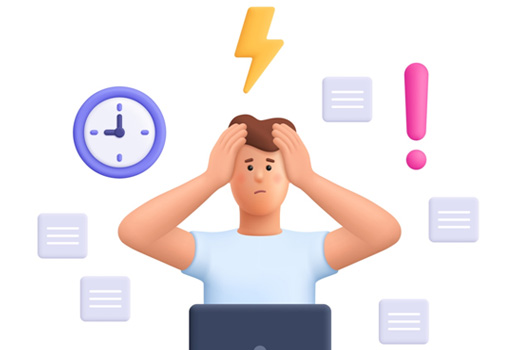Tackling the Disconnection Dilemma: How Coaching Can Rebuild Workplace Communities
by Mentoring Matters
4 minutes read
The modern workplace is a shapeshifter. While remote work, hybrid models, and the gig economy offer flexibility and autonomy, they have also sparked a deeper, more insidious crisis—one of human sustainability. It's not just about the 'Great Resignation' or 'Quiet Quitting,' but about employees struggling to find balance in a workplace that no longer feels connected.
This newfound freedom has come at a cost: a growing sense of disconnection amongst colleagues.
In this 'always-on' world, work-life boundaries blur, and the pressure to perform is relentless. With 40% of workers feeling perpetually exhausted and nearly a quarter experiencing burnout, it's a recipe for disaster—not just for individuals, but for entire organizations.
In response, a multi-billion dollar wellness industry has exploded, offering everything from meditation apps to yoga classes. But are these quick fixes enough? A recent report by the University of Oxford Wellbeing Research Centre suggests not. These programs, while well-intentioned, often fail to address the root causes of this pervasive malaise. They treat the symptoms, not the disease.
So, what's the missing piece? What can truly address this human sustainability crisis and create workplaces where people thrive, not just survive?
Enter Coaching: A Deeper Dive into Well-being

Working with coaches across the board, we see this disconnect firsthand. Our clients – individuals and teams – voice their struggles with isolation, communication breakdowns, and a lack of belonging. So, how do we begin to rebuild these fragmented workplace communities?
Imagine this: instead of a generic stress-management workshop, an employee struggling with burnout engages in one-on-one coaching. They delve into the root causes of their exhaustion, explore their values and priorities, and develop personalized strategies for setting boundaries and managing their workload.
This is the power of coaching. It's not a quick fix, but a transformative journey that empowers individuals to take control of their well-being. By fostering self-awareness, building resilience, and developing coping mechanisms, coaching equips employees to navigate the complexities of the modern workplace.
Coaching in Action: Rebuilding Connections
Imagine a team struggling with communication breakdowns and a lack of trust. A coach can work with this team to:
• Identify communication barriers: Through group and individual sessions, team members can better understand their communication styles and where breakdowns are happening.
• Develop active listening skills: Coaching helps build empathy and understanding by strengthening team members' listening abilities.
• Establish clear communication protocols: By facilitating a group discussion, the coach can help the team create guidelines to ensure consistent, transparent communication.
• Facilitate team-building activities: Even in virtual settings, a coach can design activities that rebuild trust and foster genuine connection among team members.
Beyond the Individual: Building a Coaching Culture
But the impact of coaching extends far beyond individual well-being. When organizations embrace a coaching culture, they create an environment where:
 Open communication thrives: Employees feel safe to voice concerns, share challenges, and seek support.
Open communication thrives: Employees feel safe to voice concerns, share challenges, and seek support.
Growth is encouraged: Individuals are empowered to develop their skills, pursue their passions, and reach their full potential.
Empathy and understanding flourish: Leaders become skilled at listening, providing feedback, and supporting their team's well-being.
This shift towards a coaching culture can reinvigorate existing wellness programs. Instead of generic solutions, organizations can offer personalized coaching sessions tailored to individual needs.
A Sustainable Future of Work
The human sustainability crisis requires a radical shift in how we approach workplace well-being. It's time to move beyond superficial fixes and address the root causes of burnout and disengagement. By embracing coaching, organizations can create a sustainable future of work—where employees feel valued, supported, and empowered to thrive.
In a world of constant demands, coaching offers a human-centered solution. It's an investment in your most valuable resource—your people. And it’s an investment that pays off in engagement, productivity, and overall well-being.
- Previous article:
- Next article: